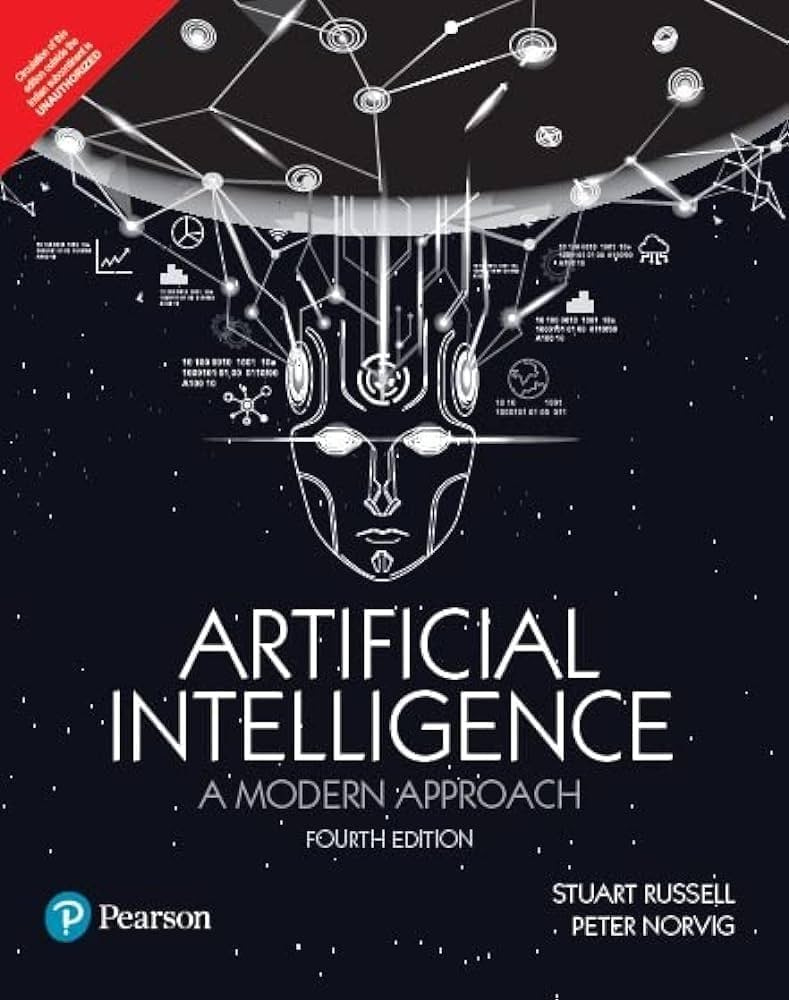Series: “AI Under the Lens”: Russell and Norvig - Artificial Intelligence: A Modern Approach #4
Philosophical Foundations and the Future Trajectory of AI
“AI Under the Lens” Series:
Format: every week we offer a critical analysis of AI advancements, focusing on ethical, social and existential risks.
Goal: To spark thoughtful discussion on the implications of AI, encouraging deeper understanding of its potential risks and fostering responsible innovation and development.
Today, we delve into Chapters 26 and 27 of "Artificial Intelligence: A Modern Approach" by Stuart Russell and Peter Norvig, exploring the profound questions that lie at the intersection of technology, consciousness, and ethics.
Philosophical Foundations of AI
Weak AI vs. Strong AI: Can Machines Truly Think?
The age-old question of whether machines can think has transitioned from the realm of philosophy to a pressing technological inquiry. Weak AI posits that machines can simulate human intelligence without possessing consciousness or understanding. They perform tasks efficiently, but they don't "know" they're doing so. Examples abound in today's technology—chatbots that handle customer inquiries or algorithms that recommend your next favorite song.
Strong AI, on the other hand, suggests that machines could possess consciousness and understanding equivalent to human minds. If a machine's cognitive functions are indistinguishable from a human's, should it be considered truly intelligent? This isn't just a theoretical debate; it has practical implications for how we design, interact with, and regulate AI systems.
The Turing Test and Its Limitations
Alan Turing's famous test proposes that if a machine can engage in a conversation indistinguishable from that of a human, it could be considered intelligent. While the Turing Test has been a cornerstone in AI development, critics argue that it measures only the imitation of intelligence, not genuine understanding.
Philosopher John Searle's Chinese Room Argument adds depth to this critique. Searle imagines a non-Chinese speaker following instructions to manipulate Chinese symbols, convincingly simulating understanding without any actual comprehension. This thought experiment challenges the notion that syntactic processing (manipulating symbols) equates to semantic understanding (grasping meaning).
Ethical Considerations and Existential Risks
As AI systems become more autonomous and integrated into society, ethical considerations move to the forefront. The potential for AI to cause unintended harm—whether through biased algorithms, loss of privacy, or even existential threats posed by superintelligent systems—cannot be ignored.
The alignment problem becomes critical: How do we ensure that AI systems act in ways that are consistent with human values? This is not just a technical challenge but a philosophical one, requiring interdisciplinary collaboration to navigate complex moral landscapes.
The Present and Future of AI
Building Intelligent Agents: The Components and Architectures
Russell and Norvig dissect the anatomy of intelligent agents—systems that perceive their environment and take actions to achieve specific goals. Key components include:
Perception: Gathering and interpreting data from the environment.
Reasoning and Representation: Making sense of the data using models and logic.
Learning: Improving performance over time through experience.
Action: Executing decisions to affect the environment.
The architecture of these agents ranges from simple reflex agents, which react to stimuli, to deliberative agents that plan and reason about future actions. As we aim for more sophisticated AI, hierarchical architectures become essential, allowing systems to manage complex tasks by breaking them down into manageable sub-tasks.
Are We Heading in the Right Direction?
The rapid advancement of AI prompts introspection about the path we're on. While technological capabilities have surged, questions remain about understanding and controlling these systems. The authors urge transparency and caution, emphasizing the need for AI to be aligned with human values.
This involves not just technical safeguards but also regulatory frameworks and ethical guidelines. The integration of AI into critical sectors like healthcare, finance, and transportation amplifies the stakes, making it imperative that we get this right.
The Future: Successes, Risks, and Responsibilities
What happens if AI achieves or surpasses human-level intelligence? Russell and Norvig explore scenarios ranging from utopian to catastrophic. The potential benefits are immense—solving complex global challenges, advancing science, and enhancing quality of life. However, risks include loss of control over superintelligent systems, unemployment due to automation, and ethical dilemmas surrounding AI autonomy.
The concept of superintelligence—AI systems that surpass human intelligence across all domains—raises existential questions. If we create entities more intelligent than ourselves, how do we ensure they remain beneficial? This isn't science fiction; it's a pressing concern as AI capabilities accelerate.
Monaco's Role in Shaping AI's Future
In Monaco, where innovation is embraced amid a backdrop of cultural richness, we have a unique opportunity to influence the trajectory of AI. As investors, policymakers, and thought leaders, our actions can foster the development of AI that is both advanced and aligned with societal values.
Ethical Investment: Supporting companies that prioritize ethical AI development.
Policy Leadership: Crafting regulations that promote transparency, accountability, and safety in AI systems.
Education and Dialogue: Encouraging public discourse on AI's implications, ensuring diverse perspectives shape its evolution.
Conclusion: A Collective Journey Forward
The philosophical foundations and future trajectory of AI are not just academic topics; they are critical considerations that will shape our society. Understanding the nuances of Weak vs. Strong AI, the limitations of the Turing Test, and the complexities of building intelligent agents equips us to navigate the challenges ahead.
As we stand on the cusp of potentially unprecedented technological change, the fusion of philosophy, ethics, and engineering becomes essential. By engaging with these ideas, we can contribute to an AI future that enhances human well-being while mitigating risks.
I invite you to reflect and engage. How do you perceive the balance between AI's potential benefits and its philosophical and ethical challenges? What steps should we take to ensure that AI develops in harmony with human values?



